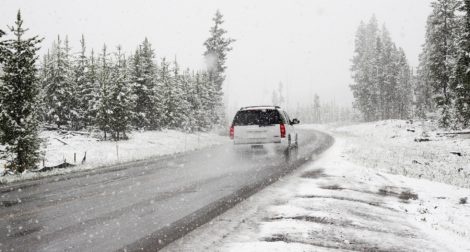
Snow Day! It’s a glorious phrase to school kids everywhere, and a massive pain for employers. Here in North Alabama, commerce was dragged to a halt yesterday by a dusting of snow. While my friends in the North scoff, we play it safe in the Deep South even when there’s a possibility of ice. As a result, employers need to think about the legal ramifications of inclement weather.
Let’s first focus on the “coldhearted” (pun intended) employers out there. Some businesses cannot or do not close in the face of snow. While surfing Twitter yesterday, I came across this interesting news story from Memphis: Employers Can Legally Fire You for Not Coming To Work In Bad Weather. It provides a correct analysis of the employee-at-will doctrine and its application to snow days — both in Tennessee and Alabama. In most cases, if an employee does not possess an employment contract, and refuses to come to work because of weather, he or she can be terminated from employment.
Most employers will probably be more concerned about whether they are required to pay employees for snow days. This question implicates the Fair Labor Standards Act (“FLSA”). If the employer closes the business because of weather, it is not required to pay hourly, non-exempt employees for the time off. The employer can allow such employees to use Paid Time Off to cover the absence, or consider the time-off unpaid. As a practical matter, many employers pay employees, even though it’s not required, in the interest of employee relations.
Weather days for overtime-exempt employees are more difficult. If an employer is open-for-business, but the employee chooses to stay home, the employee is not entitled to pay for the day. The employer can dock the employee’s salary in full-day increments without violating the salary-basis test of the FLSA. In contrast, if the employer closes the business, the employee’s full salary must be paid for the week — even though he or she may not have worked a full work week.
For Alabama employers, I hope that this post helps you to enjoy the snow while understanding your obligations to employees.